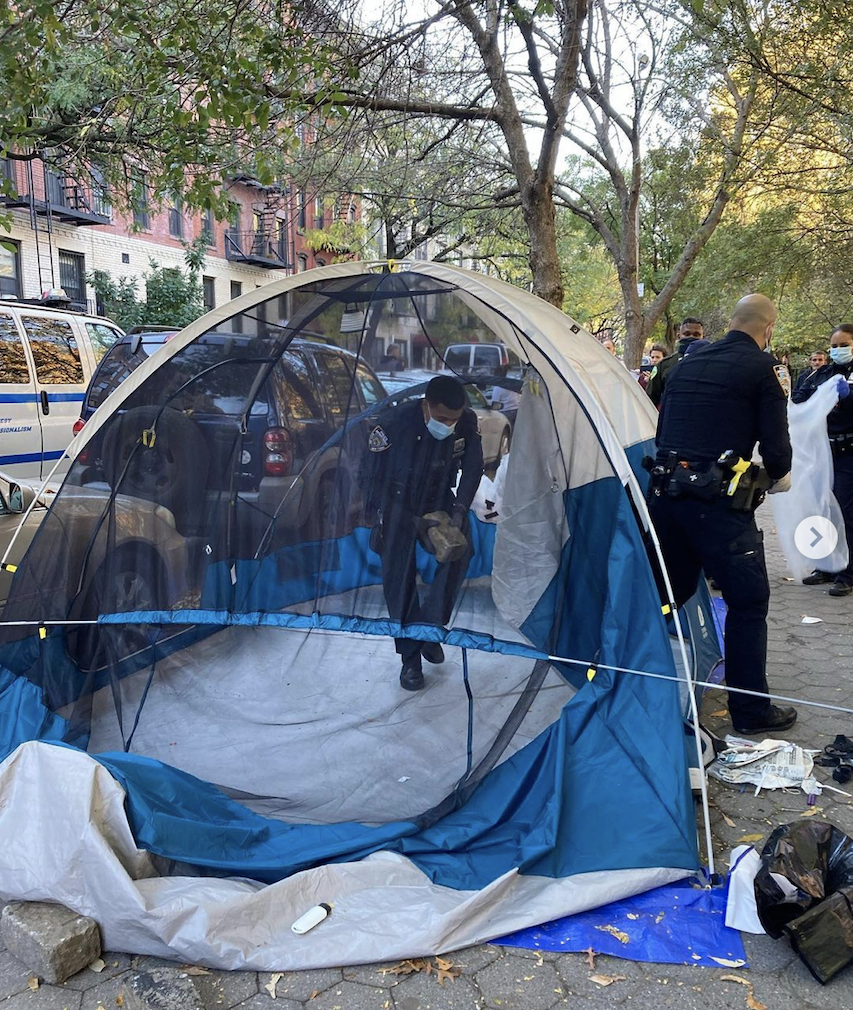On Nov. 10, a community of unhoused people were evicted from 7th Street along Tompkins Square Park by the New York City Department of Sanitation. The eviction of Tompkins Tent City, as it is called by many locals, highlighted the growing issues of housing insecurity in New York.
Organizers and community members have supported the unhoused people in Tompkins Tent City since the eviction notice was posted on October 31. Initially, they set up a 24-hour watch because the notice did not specify an exact time for the clean-up. They provided residents with three meals a day, medical and hygiene supplies, and warm clothing. After a week, organizers lessened their presence to mornings and evenings.
“Full transparency, residents by Tompkins received such swift support because an eviction notice went public,” social worker and abolitionist @msveganapicante wrote in an Instagram post published on Monday. “Unfortunately we are not always aware of where unhoused communities reside, or when they will be evicted. These communities exist all over.”
On Nov. 10, the New York Police Department, the New York City Department of Parks and Recreation and the New York City Department of Homeless Services began the clean-up.
“The NYPD, Parks Department and Homeless Outreach were throwing away personal property, ripping apart tents and arresting comrades and residents who were trying to gather their belongings,” photojournalist and organizer Faith Norwood said. “We had a table setup with supplies for the residents and all of the supplies were thrown into the garbage truck.”
Houselessness in New York City has reached its highest levels since the Great Depression according to The Coalition for the Homeless. In the last decade, houselessness in New York City has increased by 40 percent despite a national decline. One in four unhoused American families lives in a New York City shelter according to the US Department of Housing and Urban Development.
HUD stresses that the most effective way of reducing houselessness is to prevent it in the first place. However, New York City spends 70 percent of its $3 billion budget for supporting those experiencing or at risk of houselessness on operating shelters.
“The city has a [responsibility] to end the human rights crisis that is homelessness, but we (esp white gentrifiers) have a [responsibility] to care for our neighbors and discontinue displacement on stolen land,” @msveganapicante wrote. “It’s not their fault but the consequence of greedy state and private corporate entities!”
To Norwood, the bottom line is that people need to care about their most vulnerable neighbors for anything to change.
“The houseless issue is a result of lack of humanity and compassion,” Norwood said. “New York could’ve solved our houseless issue years ago but decided not to because the people with power and money are heartless and see the houseless community as less than. Everyone has to remember that they are just one really bad day away from ending up like the people that they step over constantly.”![]()
“It doesn’t have to be like this,” @msveganapicante wrote, echoing the sentiment. “Facilitation of care has to start with caring, period.”








